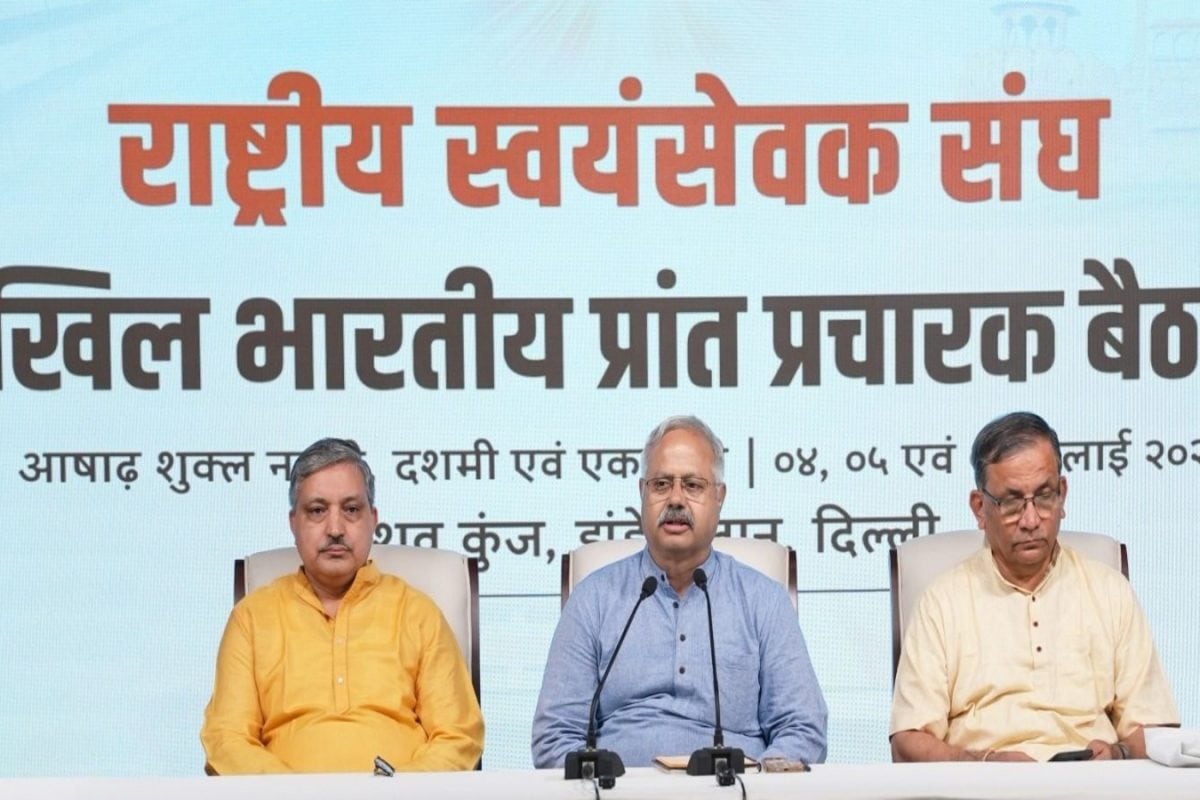

The Rashtriya Swayamsevak Sangh (RSS) and the Indian National Congress have recently engaged in a heated exchange, sparked by the RSS questioning the inclusion of the words "socialist" and "secular" in the Preamble to the Constitution. This has led to a broader debate about the RSS's views on the Constitution and its role in Indian society.
Dattatreya Hosabale, the General Secretary of the RSS, ignited the controversy by stating that the terms "socialist" and "secular" were not part of the original Preamble drafted by B.R. Ambedkar, but were added during the Emergency in 1976. He argued that these words were inserted at a time when fundamental rights were suspended and democratic processes were curtailed. Hosabale questioned whether these terms, and the ideologies they represent, should continue to be considered eternal for India. He also accused the Congress party of Emergency-era abuses, demanding a formal apology.
The Congress party swiftly and strongly condemned the RSS's remarks. They accused the RSS of a "conspiracy to destroy Ambedkar's Constitution" and asserted that the RSS has historically never accepted the Constitution. Congress leaders highlighted past statements and actions by the RSS and BJP that allegedly aimed to rewrite or replace the Constitution. Jairam Ramesh, Congress general secretary, pointed to Prime Minister Narendra Modi's 2024 election campaign, where he called for securing 400-plus seats in Parliament, which Ramesh claims was to enable constitutional changes. The Congress party has vowed to protect the Constitution and prevent any attempts to alter its basic structure.
The Congress party also referenced a Supreme Court judgment from November 2024, which rejected petitions challenging the 42nd Constitutional Amendment that inserted "Socialist" and "Secular" into the Preamble. The court affirmed that secularism is a basic feature of the Constitution, ensuring equal treatment of all faiths. It further noted that the terms "Socialist" and "Secular" have gained widespread acceptance, with their meanings well understood by the people of India.
This is not the first time the Congress has attacked the RSS. Congress leaders have previously accused the RSS of seeking to impose uniformity on India and undermining the country's diversity. They have also criticized the RSS's alleged lack of participation in the independence movement and questioned its contributions to the nation. Some Congress leaders have gone so far as to call the RSS a "cancer" that threatens national unity.
BJP leaders have defended the RSS, countering that the Congress party's criticism stems from intolerance and frustration. They argue that the RSS has withstood Congress's threats and attacks since the time of Nehru and that the organization is essential to safeguarding their positions and securing their political future.
The debate over the RSS's views on the Constitution and its role in Indian society is likely to continue. The Congress party has positioned itself as a defender of the Constitution's original principles, while the RSS maintains its commitment to India's cultural and national identity. This ideological clash reflects deeper divisions within Indian society and underscores the ongoing struggle to define the nation's future.